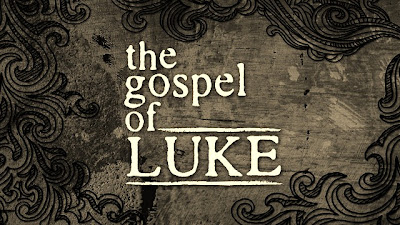I have been reading through the Gospels this quarter and I'm just about to begin reading Luke again. But, before I start, I found this neat article by Peter Scaer (a Ft. Wayne prof) that describes a few unique things to the Gospel of Luke:
While Matthew focuses on explaining the fulfillment of the prophecies in Christ and Mark is an action-packed cliff-notes version of Matthew, Luke shares the Good news focusing on the Gentiles. He is Savior and Lord to all.
"... To understand Jesus, you must know him as Yahweh, the Lord of Israel... Salvation's story thus requires a new Adam, a truly universal figure for a newly universal out-reach. Enter Luke's Gospel, at once more modern and more ancient, which introduces Christ as the new Adam (Luke 3:23-37) and the whole world as a fit dwelling place for the Lord and his followers...
Luke's lens has a wider angle [than Matthew's]: 'It came to pass in those days that there went out a decree from Caesar Augustus that the whole world should be taxed' (Luke 2:1). For Luke, Bethlehem is on a Roman map. Jesus himself was born, lived, and died in the world of Caesar...
Matthew's Herod appears sinister, even satanic, in his intent to kill, while Luke's Caesar Augustus appears not as God's enemy, but as his puppet... Luke's Pilate may have indeed sentenced Jesus to death, but he did so reluctantly, three times declaring Jesus' innocence...
Rather than oppose Caesar, Luke relativizes him and uses him as a type of sermon illustration... It was commonplace for rulers to call themselves savior and to boast of their abilities as peacemakers and benefactors... Luke thus writes against the backdrop of an Augustus knows as savior, peacemaker, and benefactor. Tellingly, Luke alone among the synoptics calls Jesus 'Savior...'
If history matters, no history matters more than that of the incarnation. At the same time, the study of the classics must remain forward-looking. By entering into the world of Caesar, Jesus embraced the world as it was and saw the opportunities before him..."
If you're interested in the rest of the article (where Scaer describes Christians and Christ himself as early evangelical philosophers), you can snag your own copy of the whole journal for a couple bucks.
Here's a great article by Gene Edward Veith!!


No comments:
Post a Comment